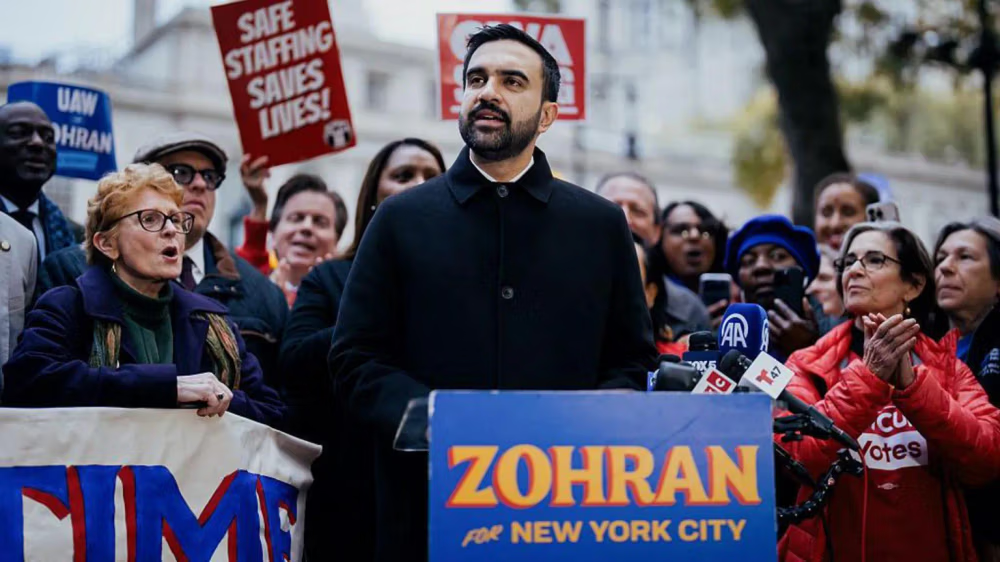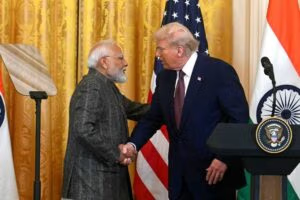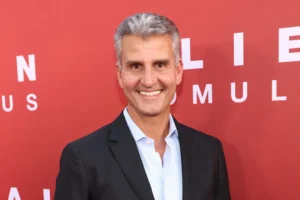In a historic first, New York City — the largest city in the United States — has elected its first Muslim and South Asian mayor. At just 34, Zohran Mamdani’s rise from relative obscurity to City Hall marks one of the most remarkable political ascents in recent memory.
Since first announcing his candidacy, the democratic socialist assemblyman from Queens has captured the imagination of progressive voters, disrupted the Democratic establishment, and drawn fire from conservative critics — including President Donald Trump himself.
“Today we have spoken in a clear voice: hope is alive,” Mamdani declared in his victory speech, vowing to bring compassion and clarity to City Hall. “Let City Hall, with our compassion, our conviction and our clarity, be the light that our city and our nation so desperately need.”
From Kampala to Queens
Born in Uganda, Mamdani moved to New York with his family at the age of seven. A graduate of the Bronx High School of Science, he later earned a degree in Africana Studies from Bowdoin College, where he co-founded the campus chapter of Students for Justice in Palestine.
Rooted in one of the world’s most diverse cities, Mamdani has made his Muslim identity and immigrant story central to his political message. He frequently visited mosques during his campaign and even released a video in Urdu highlighting the city’s struggles with the cost of living.
“We know that to stand in public as a Muslim is also to sacrifice the safety that we can sometimes find in the shadows,” he said at a rally.
His family’s background is steeped in art and academia — his mother, Mira Nair, is an acclaimed film director, while his father, Professor Mahmood Mamdani, teaches at Columbia University. Mamdani’s wife, Syrian artist Rama Duwaji, lives in Brooklyn. The two met on the dating app Hinge.
Before entering politics, Mamdani worked as a housing counselor in Queens, helping low-income homeowners avoid eviction.
A Platform Built on Affordability and Equity
Mamdani’s campaign, like his opponents’, focused on making New York safer and more affordable — but his methods stood out for their boldness.
Among his most talked-about proposals is a four-year rent freeze on the city’s one million rent-stabilized apartments. “This is a city where one in four of its people are living in poverty, a city where 500,000 kids go to sleep hungry every night,” he told the BBC. “And ultimately, it’s a city that is in danger of losing that which makes it so special.”
Critics, however, warn that such measures could harm landlords and reduce operating incomes. Researchers at Maverick Real Estate Partners called the proposal “catastrophic.”
Beyond housing, Mamdani wants to reimagine affordability more broadly — with initiatives like city-owned grocery stores, free public buses, and lower childcare costs.
He estimates that making buses free would cost around $630 million annually, though MTA officials suggest it could reach $1 billion. To fund his programs, Mamdani has proposed raising the corporate tax rate from 7.25% to 11.5% and adding a 2% tax on millionaires, which his campaign claims would generate $9 billion. Governor Kathy Hochul, however, has said she won’t back tax increases on the wealthy.
He has also pledged to raise the minimum wage from $16.50 to $30 per hour by 2030, a move supporters hail as necessary but critics argue could drive jobs out of the city.
Winning Over Young Voters
A major driver of Mamdani’s success was his ability to connect with younger, online voters. His social media presence was viewed as authentic and relatable — a contrast to traditional politicians.
“You don’t have to be young to be able to do it,” said Jane Hall, a communications professor at American University. “But you have to be seen as authentic and speaking to what people care about in a way that makes them want to be on the bandwagon.”
Still, detractors — including President Trump — have called him inexperienced and radical. Trump labeled him a “communist” and threatened to withhold federal funds from his administration. Mamdani dismissed those attacks with defiance.
“Donald Trump, since I know you’re watching, I have four words for you: Turn the volume up,” he said. “To get to any of us, you will have to get through all of us.”
Trump’s response on social media was blunt: “…AND SO IT BEGINS!”
A Vision for Safety and Community
Mamdani’s approach to public safety aims to move beyond policing. One of his flagship policies is a Department of Community Safety, which would expand mental health services and create a system where trained mental health professionals respond to relevant 911 calls — instead of police officers.
Critics like Republican opponent Curtis Sliwa say the plan is unsafe and unrealistic.
Meanwhile, the quality of life in New York remains a challenge. According to the Citizens Budget Commission, only 34% of residents in 2025 rated the city’s quality of life as “excellent” or “good,” down from 51% in 2017 — setting the stage for the tough road ahead.
Views on Israel and Gaza
Mamdani’s outspoken stance on the Israel-Gaza conflict has drawn national attention. A longtime advocate for Palestinian rights, he introduced legislation in the state assembly to end tax exemptions for New York charities linked to Israeli settlements that violate international law.
He has called Israel an apartheid state and accused it of genocide in Gaza — charges Israel denies. He has also said Israeli Prime Minister Benjamin Netanyahu should be arrested.
Pressed repeatedly on whether he supports Israel’s right to exist as a Jewish state, Mamdani responded:
“I’m not comfortable supporting any state that has a hierarchy of citizenship on the basis of religion or anything else. I think that in the way that we have in this country, equality should be enshrined in every country in the world.”
At the same time, he has condemned antisemitism, vowing to increase funding to combat hate crimes across New York City.
The Road Ahead
As Mamdani prepares to take office, he inherits a city defined by extremes — vast wealth and deep inequality, innovation and exhaustion, optimism and skepticism. His policies promise sweeping change, but also face entrenched resistance.
And yet, to his supporters, Mamdani’s election symbolizes something larger than policy — a moment of representation and renewal. “Hope is alive,” he told his supporters on election night. Whether that hope can withstand the weight of City Hall remains the question.






